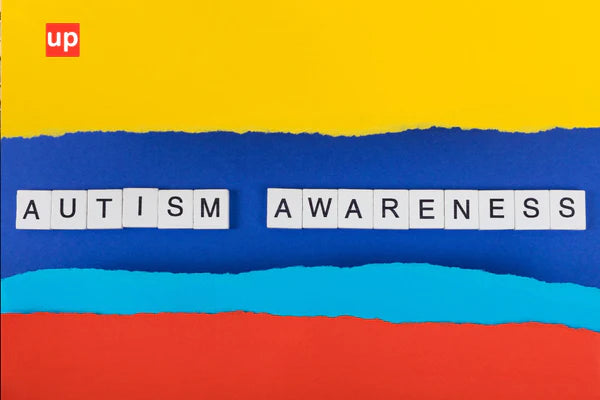If you are trying to understand what it means to be an autistic adult, know that the landscape is as diverse as the individuals themselves. Living with autism spectrum disorder (ASD) as an adult comes with unique challenges and advantages, from navigating social cues to finding appropriate career paths. This article examines key aspects of adult autism, including diagnosis, mental health, workplace integration, and the power of community support.
Key findings
- Autistic adults experience a diverse range of symptoms that affect social interactions, routines, and sensory processing, which requires tailored coping and communication strategies.
- The process of diagnosing autism in adults is complex and involves a multidimensional assessment, with adult diagnosis often leading to a deeper understanding of self and better access to support.
- A fundamental aspect of supporting autistic adults is addressing their mental health, which includes anxiety and depression, through specialist treatment and strategies to develop effective coping mechanisms.
Navigating the autism spectrum in adults
 Autism spectrum disorder (ASD) can present in myriad ways, with each autistic adult having unique experiences and challenges. Some adults may experience symptoms similar to Attention Deficit Hyperactivity Disorder (ADHD), while others may struggle with impairments in verbal speech or social interactions. These adults may not even recognize that they are behaving differently from others until later in life, which makes diagnosing autism in adults even more complicated.
Autism spectrum disorder (ASD) can present in myriad ways, with each autistic adult having unique experiences and challenges. Some adults may experience symptoms similar to Attention Deficit Hyperactivity Disorder (ADHD), while others may struggle with impairments in verbal speech or social interactions. These adults may not even recognize that they are behaving differently from others until later in life, which makes diagnosing autism in adults even more complicated.
Establishing and maintaining relationships is one of the daily challenges that autistic adults face. The social isolation they often experience can lead to mood disorders, and the unique symptoms of autism can pose challenges in maintaining the organisation of their daily routine.
For autistic individuals, the prevailing social interaction in our daily lives can feel like a minefield of confusion and misunderstandings. They may experience difficulties in relating to others and understanding emotions, making communication more difficult for them.
Decoding of social interactions
Autism symptoms commonly seen in autistic adults include:
- Interpretation of social cues
- Misinterpretation of non-literal language, such as sarcasm and figures of speech
- Difficulty in reading social cues
- Difficulty in maintaining eye contact
- Use of monotone voice
- Limited facial expressions
- Repetitive behaviours
These challenges can make social interactions more difficult for autistic adults.
However, certain strategies can enhance understanding of non-literal language, such as clear explanations and instructions, and avoiding ambiguous concepts, irony, sarcasm and figurative language.
Embracing repetitive routines
For many autistic adults, routine is important. It provides security, predictability, and a sense of comfort. However, any disruption to their routine can cause discomfort and strong emotional reactions. To mitigate these disruptions, promoting flexibility, using visual aids and establishing a structured approach to handling change can help manage social and communication difficulties.
Autistic adults can also use strategies such as timers, lists or calendars and automate certain aspects of life to effectively manage daily tasks.
Sensory processing experiences
Autism is often characterised by sensory sensitivities, which are among the common features of autism. Autistic adults may have sensitivities to images, sounds, smells, tastes, touch, balance and proprioception, which can significantly affect their daily activities. These sensory processing patterns can range from low register to sensory seeking, sensory sensitivity and sensory hyporeactivity to various stimuli.
However, by implementing physical changes to their environment, such as relocating to a quieter space or engaging in one-to-one interactions, they can minimize distractions and regulate sensory inputs.
The diagnosis of autism in adults

The process of diagnosing autism in adults can be complex. Adults seeking a diagnosis can access services from state-funded agencies or private professionals offering fee-based assessments. These assessments include personal observations and examination of self-reported symptoms. Although there are no conclusive medical tests for ASD, professionals can use tools such as the Autism Diagnostic Observation Schedule, Second Edition (ADOS-2) and may suggest self-administered ASD questionnaires available online.
The assessment process for adults includes the collection of developmental, historical, and current data. The clinician will engage in discussions with the patient about communication, emotions, and behavior patterns and may interview the patient's parents or older family members to gain a thorough understanding of the individual's characteristics.
Obtaining an adult autism diagnosis can provide a deeper understanding of the individual's barriers and abilities. It can assist in creating individualized approaches to managing and addressing the challenges associated with ASD.
This formal recognition can enable people to make well-informed choices about their lives and they can access appropriate help. However, obtaining an autism diagnosis as an adult can be challenging, particularly due to the lack of health professionals with the necessary experience in adult diagnosis.
Starting the diagnostic course
Starting the autism diagnosis process can be daunting. An adult should consider a diagnosis of autism when seeking to identify their strengths, recognise areas of challenge and access appropriate support and interventions.
The Autism-Spectrum Quotient (AQ) test can contribute to this initial phase by providing a quantitative assessment of autistic traits and helping to determine the need for further assessment for ASD. If adults have concerns about whether they are autistic, they should seek guidance from their doctor, who can offer advice and support on the next steps to take.
Understanding the diagnostic criteria
The diagnostic criteria for adult ASD include difficulties in social communication, restricted and repetitive behaviours and sensory sensitivities. The onset of ASD symptoms during adolescence or adulthood may indicate the presence of a cognitive or mental condition other than ASD. This suggests the need for comprehensive assessment and diagnosis by a qualified health professional.
During the diagnostic process, the clinician may seek information about the individual's interests, emotions and childhood. If the individual is unable to identify a specialist with expertise in diagnosing ASD, he or she may need to conduct thorough research or consult with a developmental pediatrician or child psychiatrist who is open to working with adult patients.
The value of official recognition
Being diagnosed with ASD as an adult can bring about transformative experiences. It can result in:
- deeper self-awareness
- new insights into one's life and upbringing
- help in building on personal strengths while addressing the affected areas
- access to support resources
- eligibility for government initiatives
- insurance coverage of related costs
A diagnosis of autism for adults can have several positive impacts, including
- Providing greater self-esteem and validation of personal experiences
- Enhancing understanding and empathy from friends and family
- Changing social dynamics and reducing anxiety during interactions with non-autistic family members and friends
Mental health concerns for autistic adults

A critical aspect of understanding adult autism is mental health. Co-existing mental health conditions are common in autistic adults, with anxiety and depression being particularly prevalent.
It is vital to prioritise finding a therapist who specialises in autism spectrum disorder (ASD) when seeking support for autistic adults. A psychiatrist may recommend medication as a treatment to relieve symptoms of co-occurring disorders such as anxiety or depression.
Effective coping mechanisms play a key role in the management of these co-occurring conditions. Adults with autism can enhance their understanding of non-literal language by using strategies that include clear explanations and instructions, as well as avoiding ambiguous meanings, irony, sarcasm and figurative language.
These strategies for managing stress, anxiety and depression, including exercise, relaxation techniques and social support, can provide tremendous help.
Identification of co-existing conditions
A key part of managing the overall mental health of autistic adults is identifying co-occurring conditions. Anxiety and depression are frequently seen in autistic adults and these conditions can be attributed to feelings of being misunderstood or unaccepted by neurotypical individuals, anxious behaviors, social camouflage, and the frequent co-occurrence of these conditions in individuals with autism.
The manifestations of these conditions may include anxious behaviours such as:
- anger outbursts
- flight
- avoidance of new tasks
- hitting
- feeling intimidated or mistreated
- low self-esteem
- loneliness
- obsessive behaviours
- fatigue
- sleep problems
- headaches
- suicidal thoughts
Development of coping mechanisms
In managing the mental health of autistic adults, the development of coping mechanisms is integral to the management of mental health. Effective relaxation methods for managing anxiety in autistic adults include practices such as:
- mindfulness
- yoga
- meditation
- using techniques such as deep breathing to enhance self-control and induce calmness
Physical activity, such as yoga and general exercise, can also reduce cortisol levels, which are associated with anxiety, helping to reduce anxiety in autistic adults.
In addition, social support can bring significant benefits in managing anxiety, especially if the individual has been trained in anxiety management skills. Identifying triggers related to sensory differences, changes in routine, anxiety, and communication difficulties is essential for autistic adults to effectively manage stress and anger.
Strategies for successful social communication

Autistic adults often face challenges in the area of social communication, an important part of our daily lives. Many people with ASD experience difficulties in predicting and interpreting the behaviour of others, as well as differences in receptive and expressive communication. However, there are effective strategies that can enhance social communication skills in autistic adults. These include:
- Use of visual supports
- Structured leisure activities
- Using visual aids to assist with social skills
- Communication tools, such as social stories and comic book discussions
Navigating non-verbal cues is another area where autistic adults often struggle. Interpreting facial expressions, body language and other non-verbal cues can be a challenge for them. However, strategies such as becoming familiar with non-verbal communication cues and receiving honest, non-judgmental and clear feedback can help their ability to navigate complex social interactions.
Strengthening verbal exchange
For autistic adults, improving verbal communication is crucial. Strategies to enhance verbal communication include:
- Adapting the conversation to the context and needs of the listener
- Self-reflection on personal values and goals
- Practicing effective communication techniques
- Avoiding sarcasm, idioms and figurative language
Disclosure of an autism diagnosis is a deeply personal decision and should be made without any external pressure. Autistic adults can prepare for disclosure by
- carefully weighing the pros and cons
- identifying their strengths and potential challenges
- seeking the support of a trusted friend or confidant
Establishing mutual understanding with people not on the spectrum is vital for people with autism and they should demonstrate patience and empathy while trying to find common ground in discussions.
Navigating to non-verbal signals
Autistic adults may find navigating non-verbal signals quite difficult. While neurotypical individuals naturally interpret facial expressions, gestures, paralogy, body language and posture, personal space, gaze and touch, these nonverbal signals can be difficult for autistic individuals to understand.
However, strategies such as using communication boards, exercising patience, respecting personal space, maintaining clarity and consistency in communication, and using visual aids or flashcards can enhance understanding and interpretation of nonverbal signals.
The absence of eye contact does not necessarily mean indifference or lack of engagement, and avoiding it can actually enhance their ability to focus on the conversation.
Workplace integration and autism

For autistic adults, integration into the workplace, an important aspect of adult life, can present unique challenges. Vocational rehabilitation can be particularly beneficial for them, offering help and resources to address career-related difficulties. These services provide opportunities for further education, volunteering or career transitions that better align with their skills and passions, thus promoting a rewarding career path.
However, autistic individuals may have difficulty in environments with sensory challenges, such as excessive noise or brightness, and may find long commutes burdensome, making conventional workplace settings challenging to navigate.
Finding a suitable career path
For autistic adults, finding a suitable career path is crucial. Career counselling and vocational rehabilitation can be valuable in supporting them in their job search, exploring their interests and passions, promoting acceptance of autism and ensuring necessary adjustments at work.
Career counselling focuses on mapping autistic individuals' strengths, interests and preferences to identify supportive career pathways, while vocational rehabilitation services can provide valuable training, resources and ongoing support for people with autism to find and maintain employment.
Supporting neurodiversity at work
In the work integration of autistic adults, advocacy for neurodiversity plays an important role. Employers can actively promote neurodiversity by:
- Providing adapted accommodations for autistic employees and people with other neurodifferentiating conditions
- Designing accommodations to meet the individual needs and support the well-being of neurodiverse employees in the workplace
- Helping to improve team performance and foster a welcoming atmosphere for all employees
Creative expression and autism
In the lives of autistic adults, artistic strengths and narrow interests play an important role. Many people with ASD exhibit exceptional intelligence and creative skills that exceed those of people without ASD. Artistic expression, particularly through art therapy, plays an important role in enabling adults with ASD to express themselves freely, enhance their mental health and improve their interpersonal relationships.
Narrow interests include intense and focused interests in specific subjects or activities that serve as an important motivation and source of pleasure in the lives of people on the autism spectrum. These particular passions often lead to distinct forms of creative expression and can serve as a source of personal fulfillment and social connection.
Exploiting artistic strengths
Autistic adults can benefit greatly from tapping into artistic strengths. Attention to detail, visual perception, and creative and artistic talents are the predominant artistic strengths seen in adults with autism. Artistic expression, particularly through art therapy, can be particularly beneficial for adults with autism as it enhances communication and expression, mitigates symptoms, and develops social, emotional, and cognitive skills.
Summary
Understanding autism in adults requires a holistic approach that takes into account their unique experiences, challenges and strengths. From navigating the spectrum to diagnosing autism in adulthood, addressing mental health issues, improving social communication, integrating into the workplace, creating a supportive community and harnessing artistic strengths - every aspect plays a vital role in improving their quality of life.
By promoting understanding, providing support and celebrating the diversity and strengths of the autistic community, we can create a more inclusive and accepting society.
Frequently asked questions
What does high-functioning autism look like in adults?
High-functioning autism in adults may include difficulty interpreting social cues, regulating emotions and maintaining conversations. In addition, individuals may demonstrate fixation on routine and order, along with repetitive habits. These characteristics may manifest themselves differently in terms of school and work performance.
What are the 3 main symptoms of autism in adults?
The main symptoms of autism in adults include difficulty interpreting the thoughts and feelings of others, anxiety in social situations and challenges in making friends. Difficulty regulating emotions is also common.
What can autistic adults do?
Autistic adults have strengths in areas such as computer coding, math, music, writing, organizing, and visual arts, making them honest and reliable employees with a strong focus on their work. They can excel in a variety of fields and make valuable contributions to the workforce.
What are the 7 types of autism?
There are several types of autism, including autism spectrum disorder, childhood disintegrative disorder, Asperger's syndrome and the current autism spectrum disorder, which includes Level 2: Low Functioning Autism (LFA) and Level 3: Classical Autism (CA).
What are the common challenges faced by autistic adults?
Autistic adults commonly face challenges in social interaction, communication, routine maintenance and sensory sensitivities, often leading to co-occurring mental health conditions such as anxiety and depression. These difficulties can have a significant impact on their daily lives and overall wellbeing.
Original content by the Upbility writing team. Reproduction of this article, in whole or in part, without attribution to the publisher is prohibited.
References
American Psychiatric Association. (2013). diagnostic and statistical manual of mental disorders (5th edition). Washington, DC: Washington.
Autism Society National Helpline. (n.d.).
Asperger/Autism Network (AANE). (n.d.).
AHA (Asperger's Syndrome and High Functioning Autism). (n.d.).
Baron-Cohen, S., Wheelwright, S., Skinner, R., Martin, J., & Clubley, E. (2001). The autism spectrum quotient (AQ): asperger's/high-functioning autism, males and females, scientists and mathematicians. Journal of Autism and Developmental Disorders, 31(1), 5-17.
World Health Organization. (2021). Autism spectrum disorders. Retrieved from https://www.who.int/news-room/fact-sheets/detail/autism-spectrum-disorders









